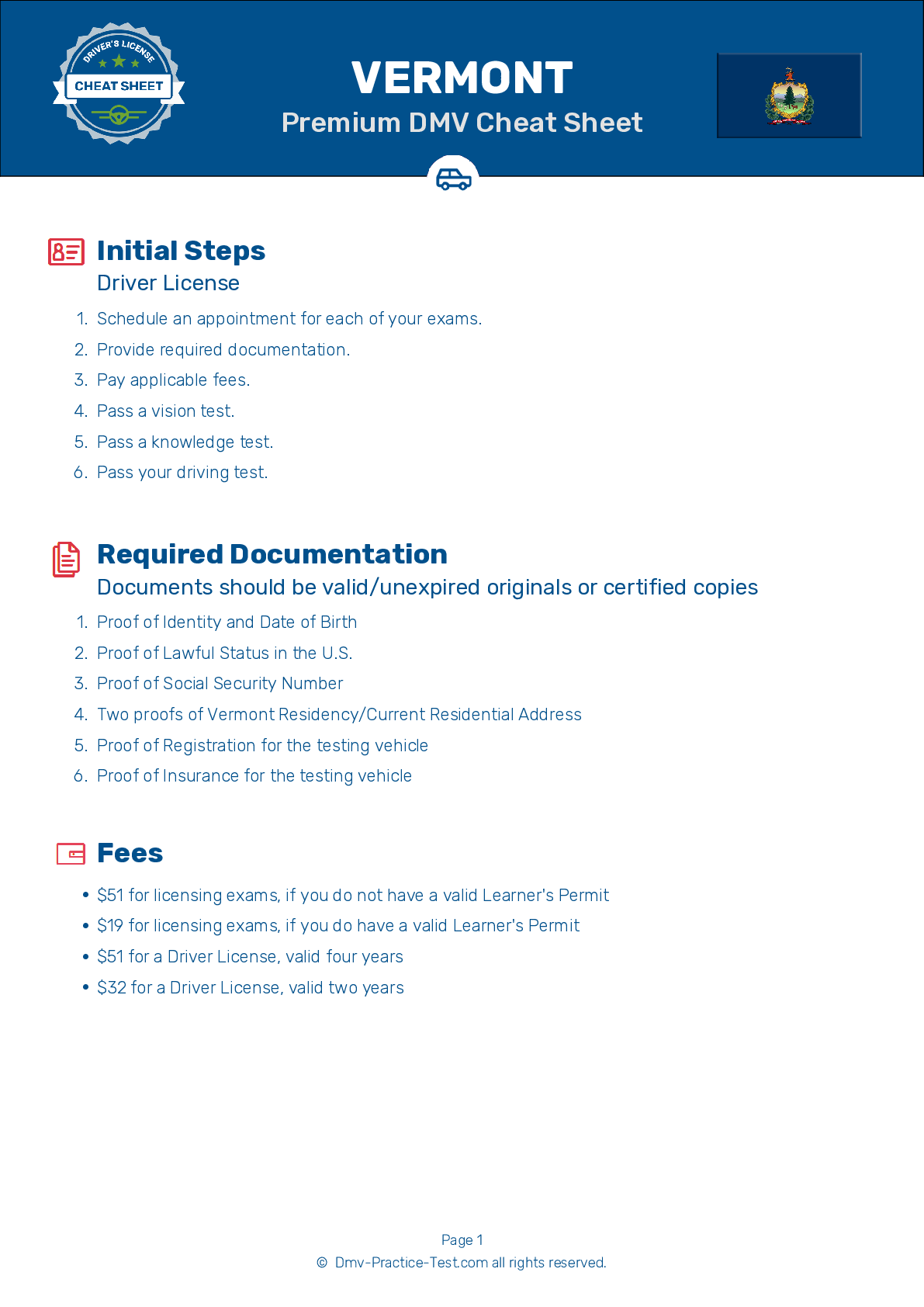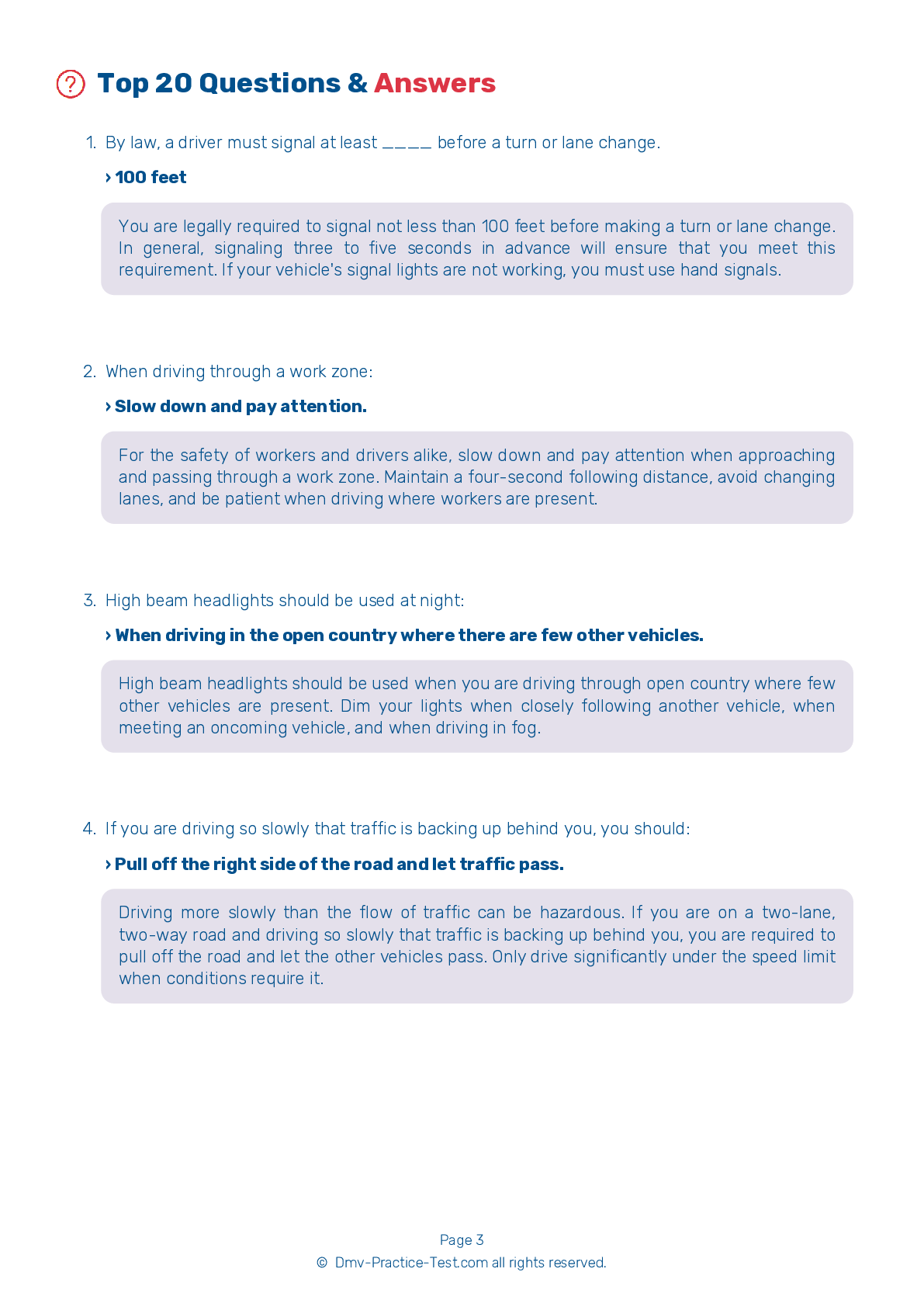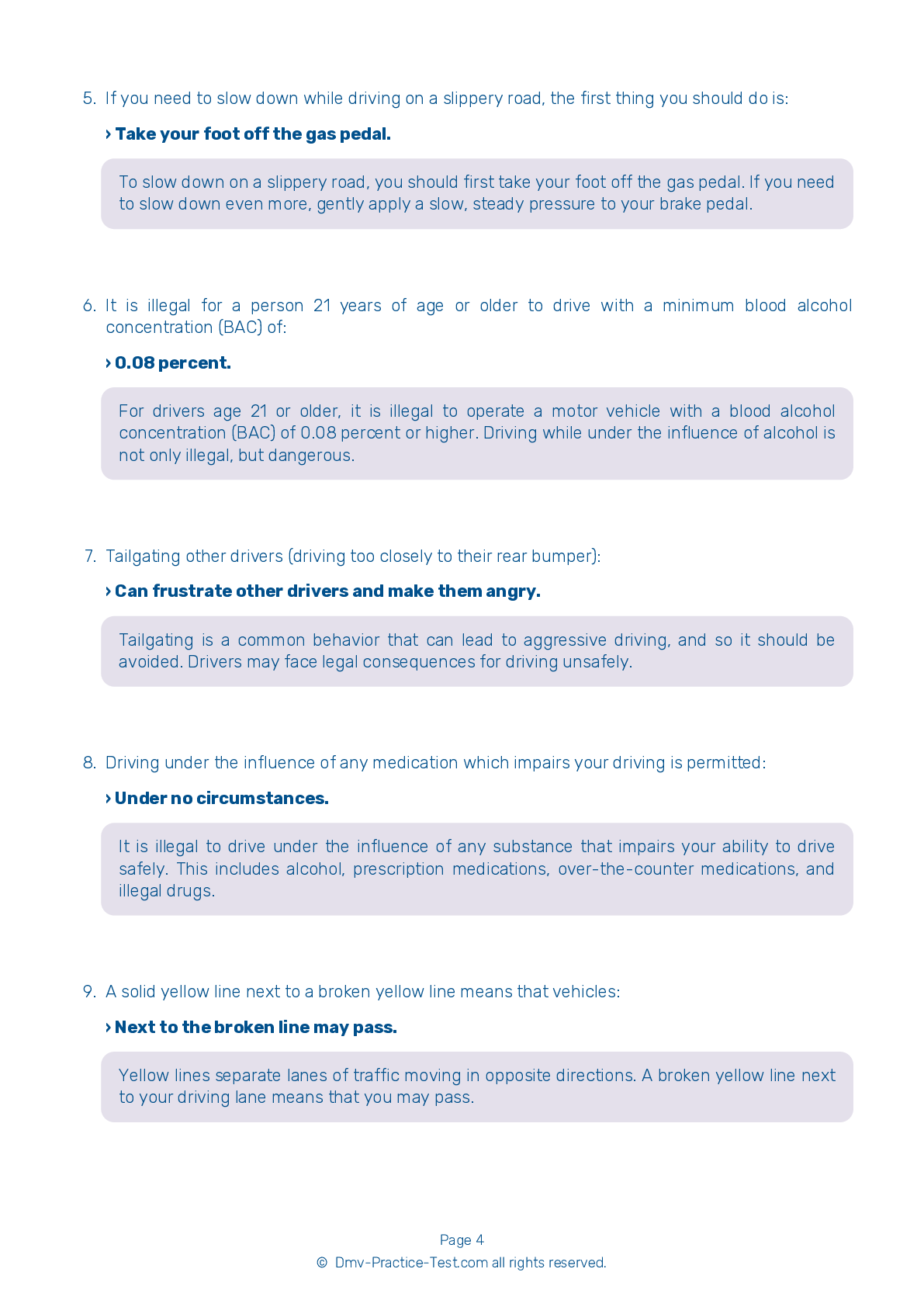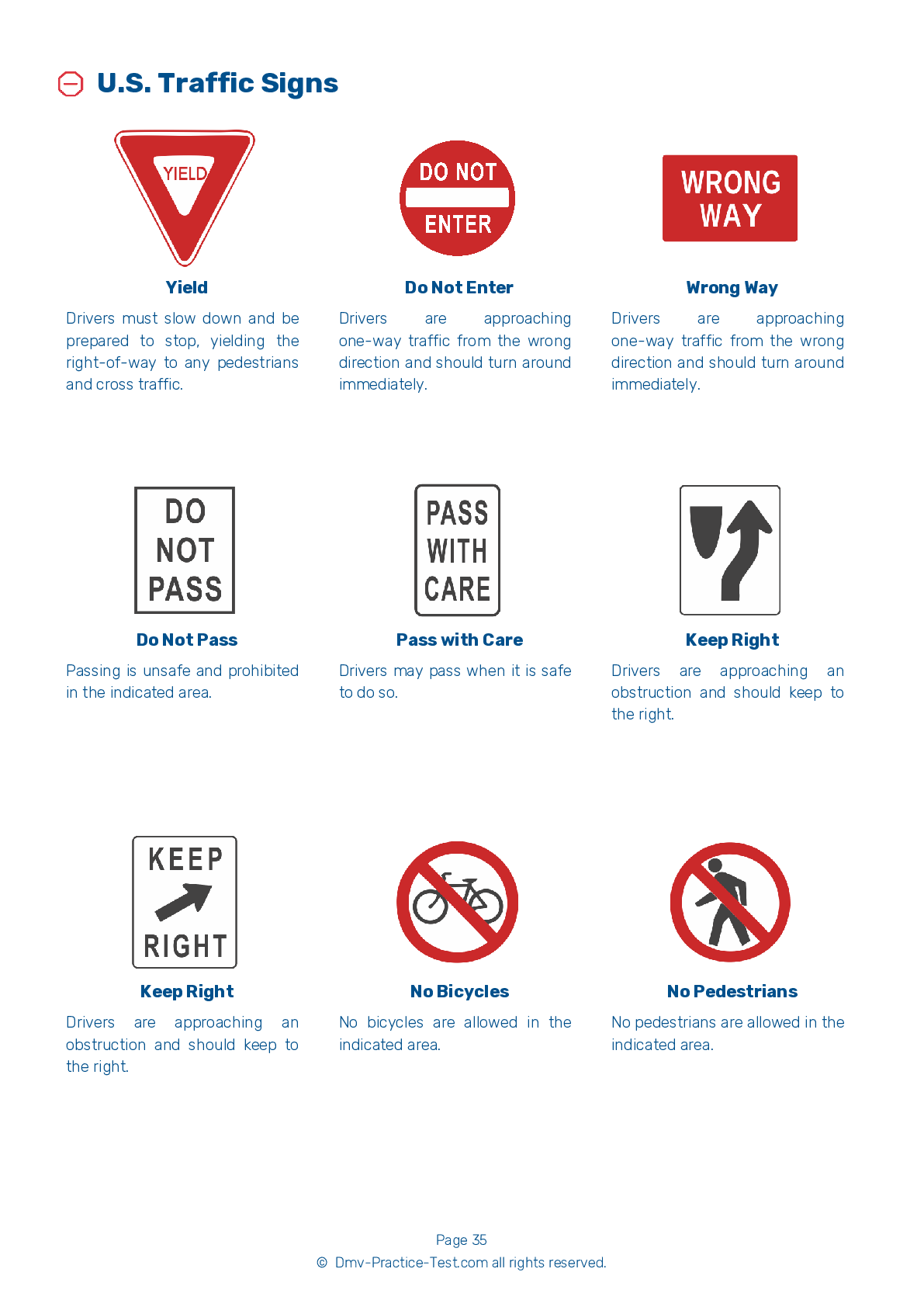FREE Vermont DMV Practice Test #23 Page 3 of 3
The Vermont DMV practise examinations have been updated for January 2026. It includes questions based on the Vermont Driver Handbook's most significant traffic signals and legislation for 2026. Use actual questions that are very similar (often identical!) to the DMV driving permit test and driver's licence exam to study for the DMV driving permit test and driver's licence exam.
On the practise exam, each question gets a tip and explanation to help you remember the concepts. The written component of the official Vermont DMV test will include questions about traffic rules, traffic signs, and driving statutes, as well as knowledge from the Driver Handbook.
To obtain a passing grade, you must correctly answer 16 of the 20 questions. Use the practise exam provided by the Vermont Department of Motor Vehicles to help you prepare for your instruction permit or driver's licence.
The DMV exam is available in several languages.
Using any kind of testing assistance will result in an automatic fail, and the DMV may take additional action against your driver's licence, so stay away from it.
14 . When is it illegal to drive below the speed limit?
It is illegal to drive so slowly that you disrupt the normal flow of traffic. You may receive a citation for driving too slowly.
15 . If you miss your exit on an interstate expressway:
If you miss your turn or exit, do not back up or try to turn around on the highway. Go to the next exit and safely turn around.
16 . When driving on roads that may be slippery:
You should avoid making any sudden changes in speed or direction when driving on a slippery surface. Reduce your speed on slippery roads and do not use cruise control.
17 . To change lanes you should:
Before changing lanes, you should activate your turn signal in the appropriate direction and check your rearview and side mirrors. Look over your shoulder in the direction you plan to move in order to check your blind spot and check the far lane to be sure no one else is trying to enter the same lane as you. Change lanes when you are sure it is safe to do so.
18 . You are driving when it starts to sleet or snow. You should:
In snowy weather, keep your windshield and mirrors clear. Increase your following distance when driving in wet and cold weather because a slippery road surface will increase the distance needed for your vehicle to stop.
19 . Drivers may not pass from either side of a ____ centerline.
A double solid yellow line down the center of a two-way road means that it is prohibited for traffic from either direction to cross the center to pass.
20 . This sign means:
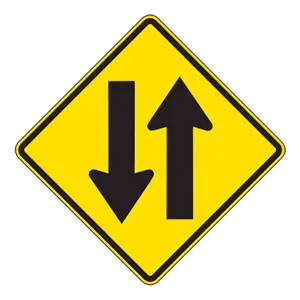
Warning signs prepare drivers for upcoming road conditions and hazards and are usually yellow with black markings. This sign tells drivers that they may encounter traffic coming from the opposite direction.
See the exact questions that will be on the 2026 Vermont DMV exam.
99.2% of people who use the cheat sheet pass the FIRST TIME
LT gives us an insight on how the cheat sheet provided her with all the study questions she needed before taking her test.
Joe initially studied with the handbook and failed his test, he eventually found us online, studied and pass his test the first time around.
2026 Vermont | Frequently Asked Questions
1. Not checking mirrors and blind spots before changing lanes or turning.
2. Speeding or driving too slowly for the conditions or posted speed limit.
3. Not coming to a complete stop at stop signs or red lights.
4. Incorrect signalling or not signalling at all.
5. Poor parking, especially parallel parking.
Remember, practice makes perfect, so take time to hone your skills.
